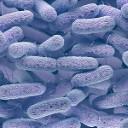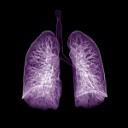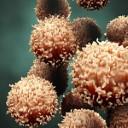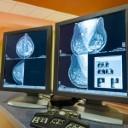-
March 6: The Week in Cancer News
A report shows that colorectal cancer incidence is decreasing in older adults while simultaneously rising in younger individuals, and the Food and Drug Administration approves a new treatment for multiple myeloma.
by Kate Yandell
-
February 28: The Week in Cancer News
Researchers find one possible explanation for the link between certain gut bacteria and colorectal cancer, and a study shows that the rate of appendix cancer is rising.
by Kate Yandell
-
February 21: The Week in Cancer News
A study shows that young cancer survivors have a higher death rate than their siblings in the decades following diagnosis, and a cancer survivor has a baby using immature eggs harvested prior to treatment and matured in the lab.
by Kate Yandell
-
February 14: The Week in Cancer News
A survey finds that outpatient palliative care clinics have become nearly ubiquitous in National Cancer Institute-designated cancer centers, and a group of oncology professionals calls for a cancer patient's bill of rights.
by Kate Yandell
-
February 7: The Week in Cancer News
A massive sequencing project reveals that mutations that drive cancer often occur years before the disease is diagnosed, and researchers report preliminary results from a trial for a new form of immunotherapy.
by Kate Yandell
-
January 31: The Week in Cancer News
A randomized trial shows that lung cancer screening reduces lung cancer deaths, and a study indicates that a single dose of psilocybin may have a lasting impact on cancer patients' anxiety and depression.
by Kate Yandell
-
January 24: The Week in Cancer News
A study shows that the rate of death following bone marrow transplant has decreased, and the U.S. Food and Drug Administration approves a new treatment for patients with a rare form of sarcoma.
by Kate Yandell
-
January 17: The Week in Cancer News
A study shows that eating more vegetables does not reduce risk of progression for patients with early-stage prostate cancer, and a new website provides information on cancer survival rates.
by Kate Yandell
-
January 10: The Week in Cancer News
The rate of cancer deaths in the U.S. has continued to decline, and the U.S. Food and Drug Administration approves a new treatment for a rare cancer type.
by Kate Yandell
-
January 3: The Week in Cancer News
When reading mammograms, an artificial intelligence system yields fewer false-positive and false-negative results than radiologists, and the U.S. Food and Drug Administration approves a targeted therapy for pancreatic cancer.
by Kate Yandell
Cancer Talk
Treatment Combination Improves Survival in EGFR-positive Lung Cancer
Adding chemotherapy to targeted therapy improves outcomes for people with advanced EGFR-positive non-small cell lung cancer.
by Sandra Gordon
Lessons From 20 Years Living With CancerMultiple myeloma survivor Jonathan Gluck reflects on uncertainty, and the scientific progress that has kept him living with cancer for more than two decades.
by Eric Fitzsimmons
The Enduring Importance of Cancer Disparities ResearchOpening session from AACR conference highlights how perseverance and adversity have informed cancer disparities research over the years.
by Eric Fitzsimmons
Most Cancer Survivors Don’t Meet Healthy Diet GoalsDespite research linking fruits and vegetables to cancer survival, many people do not change their eating habits after diagnosis.
by Darlene Dobkowski














